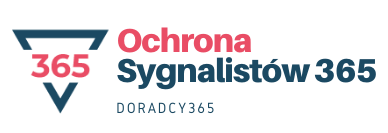
FAQ - the most important questions and answers -
Information for the Whistleblower
A whistleblower is a reporting person working in the private or public sector who has obtained information about a breach in a work-related context, whether the employment relationship is ongoing, terminated, or yet to be entered.
Whistleblowers can be categorized into internal (employees, partners) and external (former employees, recruited persons, partners, shareholders, investors, volunteers, interns, contractors, suppliers, subcontractors, counterparties, etc.).
“Infringement”
It is an act or failure to act, which is illegal and concerns EU acts and areas falling within its scope, or is contrary to the object, purpose of the provisions contained in EU acts and areas falling within the material scope.
“Report”
The act of providing information on violations.
The catalog of notifications is wide, however the EU Directive (DIRECTIVE OF THE EUROPEAN PARLIAMENT AND OF THE COUNCIL (EU) 2019/1937 of October 23, 2019 on the protection of persons reporting breaches of EU law) (LINK https://eur-lex.europa.eu/legal-content/PL/TXT/PDF/?uri=CELEX:32019L1937&from=PL
includes some example types of violations in such areas as:
- government procurement (in this case corruption, cartels, bid rigging);
- financial services, products, and markets, and the prevention of money laundering and financing terrorism;
- safety of products and their compliance with regulations;
- transport safety;
- environmental protection;
- radiological protection and nuclear safety;
- food and feed safety, animal health and welfare;
- public health;
- consumer protection;
- protection of privacy and personal data, and security of networks and information systems
- security of the energy sector
- banking sector security
- security of key digital service providers (e.g. cloud computing services)
- security of suppliers of basic utilities (gas, electricity, water).
It protects people who have wanted (even for a long time) to report some irregularities, but were afraid of the consequences. They now have the opportunity to do so, because the directive provides them with extensive protection. And not only them – also third parties associated with the applicant. The directive prohibits retaliation against the whistleblower. Until now, there was no single regulation in the Polish legal system that clearly provided protection to whistleblowers.
The Directive provides protection to the whistleblower in relation to the submission of the report
- Prohibition of retaliatory action.
- Support measures, including legal, financial, and psychological assistance.
- Means of protection against retaliation – appropriate legal provisions protecting persons who have made a report, including the lack of legal liability in justified situations.
- Measures to protect the persons affected by the report, including access to a fair trial, access to the file, presumption of innocence, right to defense and protection of identity.
- Sanctions for persons who obstruct the actions of the whistleblower, including acts of retaliation, initiating burdensome proceedings against Whistleblowers.
Retaliation against the reporting person is prohibited. List of prohibited activities (Pursuant to Article 19 of the EU Directive):
- Suspension, forced unpaid leave, dismissal or equivalent measures;
- Relegation or suspension of promotion;
- Delegation of duties, change of place of work, reduction of salary, change of working hours;
- Suspension of training;
- Negative performance appraisal or negative job opinion;
- Imposing or applying any disciplinary measure, reprimand, or other penalty, including financial penalties;
- Coercion, intimidation, mobbing, or exclusion;
- Discrimination, unfavorable or unfair treatment;
- Failure to convert a definite term employment contract into a indefinite term employment contract, where the employee might have had reasonable expectations that he or she would be offered permanent employment;
- Non-renewal or early termination of a definite term employment contract;
- Damage, including damage to a person’s reputation, especially on social media; financial loss, including economic loss and loss of income;
- Blacklisting on the basis of an informal or formal sector or industry agreement, which may result in the person not finding employment in that sector or industry in the future;
- Early termination or termination of a goods contract or a contract for the provision of services;
- Revocation of a license or permit;
- Referral for psychiatric or medical examinations.
In order to benefit from protection under the EU Directive, reporting persons should have reasonable grounds to believe, in the light of the circumstances and information at the time of reporting, that the issues they are reporting are true.
This requirement ensures that the reporting person will not be deprived of protection if he or she has reported inaccurate information on violations as a result of an unintentional error. Similarly, reporting persons should be entitled to protection under this Directive if they have reasonable grounds to believe that the information reported falls within its scope. The motives that the reporting persons are driven by when submitting a report should not play a role in deciding whether they should be granted protection.
At the same time, protection should not apply to persons reporting information that is already fully publicly available, or in the case of unjustified gossip and rumors.
The reporting channels have been designed, established, and operated in a manner ensuring confidentiality and protection of the Whistleblower’s identity (but also of third parties mentioned in the report) and preventing unauthorized access to them.
In the case of our system, the message will be sent automatically (without the intermediation of any other people, including our employees) directly to the authorized person designated to receive such messages in the organization to which the report applies (if he or she has a valid contract).
The scope of the information provided will be original (it will not be modified in any way), only the data that the Whistleblower enters in the report will be provided (for example, the IP number of the device used by the Whistleblower will not be disclosed to the above-mentioned person). The notification will be forwarded in real time – the time it takes for the message to reach the addressee depends on the speed of the Sender’s and the Recipient’s connection. We recommend that the Recipient of the message inform the Whistleblower about the receipt of the notification and about further follow-up actions that will be taken in accordance with the procedure adopted in the organization.
The follow-up actions are aimed at examining and assessing the truthfulness of the allegations contained in the report and remedying the violations that are the subject of the report. They are to be based on, in particular, an internal investigation, explanatory proceedings, and taking all possible measures to prevent the incidents covered by the report in the future.
The detailed procedure for examining reports and the deadlines for replying are described in the internal procedure of the organization that the report concerns – as a rule, the time for confirming receipt of the report should not exceed seven days, and the time for providing a reply to the Whistleblower should not exceed three months.
All possible channels for reporting irregularities have been defined in the internal procedure of the organization that the report concerns – one of them is the option to use the following form for reporting violations.
You can submit a report of any content – however, we suggest that in order to facilitate the proper assessment of your report and provide you with appropriate protection you follow the guidelines below:
- Specify the property that, in your opinion, has been threatened or infringed. Does it concern, for example, the employer’s property, work environment, employee safety, mobbing, discrimination, the natural environment, consumer safety, public finances, etc.?
- Determine what you believe the scale of the threat or breach is.
- Use facts. For information that you are unsure about, confront it with other sources, seek confirmation from other sources so that you can demonstrate at least due diligence. If you are unsure, use appropriate language.
- Never provide information that is knowingly inaccurate. This disables any protection of you.
- Try to obtain evidence. It is not your role to conduct evidentiary proceedings, but you may find yourself needing to prove the truth of your words. In further proceedings, copies of emails, documents, your dated notes from conversations with the employer, etc. may prove to be invaluable. In your Report, you can describe what you have at your disposal so that you can later send it to the person who will be considering your Report.
- Use correct language. You take responsibility for your words.
If you are unsure of a potential misconduct or lack the evidence, weigh your words. Replace phrases such as “an offense has been committed” by “it appears to me that an irregularity may have occurred”. You can also directly write about the uncertainty, e.g. “Although I do not have evidence, circumstances such as […] have raised my concerns about the correctness of the actions taken/the situation (…)” etc.
Do not exaggerate the description of the facts and avoid extreme phrases. Use language proportional to the seriousness of the irregularity and the seriousness of the breached good. If it concerns petty thefts in the workplace, the term “crime” will be inadequate and excessive.
Avoid expressions that are offensive or violate someone’s personal rights. Avoid words such as, for example, “thief”, “criminal”, or “stolen”, even if you are sure that an act involving the misdemeanor of theft has been committed. Describe the situation. You will then remain neutral and credible.
Never use invectives. Invectives drastically lower your chances of being protected, even if the situation you are reporting is objectively outrageous. Invectives, as a rule, do not fall within the limits of permitted criticism. Their use will also discourage your potential allies from contacting you and engaging in dialogue. Invectives destroy your credibility both at the workplace level and in contacts with state authorities, journalists, or other entities. Avoid conflicting language.

